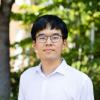The University of Virginia is proud to welcome these outstanding new faculty members to our Engineering community. Their expertise deepens our strength in areas like artificial intelligence, biomechanics, medical imaging, hypersonics and thermal systems. As researchers, they address some of the most complex challenges in their fields while fostering collaboration across disciplines. We look forward to seeing what contributions they will make to our ongoing efforts in pioneering research and education, helping to build a world that is both great and good.
UVA Engineering Welcomes New Faculty for 2024
New Faculty for 2024
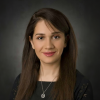
Somayeh Asadi
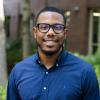
David B. Brown
David’s research group conducts experimental and theoretical studies of energy transport/conversion mechanisms and material properties across multiple length scales and temperature ranges. The primary motivation is the thermal management of hypersonic vehicles, electronic devices, and other engineering systems.

Kory Burns
Kory Burns is an Assistant Professor in the Department of Materials Science and Engineering starting Summer 2024. Kory obtained a B.S. in Chemistry from Valdosta State University, an M.S. in Materials Science and Engineering, and a Ph.D. in Materials Science and Engineering (Nuclear Engineering Program).
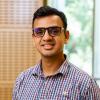
Rohan Chandra
Rohan Chandra is an Assistant Professor in the Department of Computer Science at the University of Virginia. His research interests include multi-robot navigation, human-robot interaction, and autonomous driving. The overarching goal of his robotics lab is to design algorithms and systems that enable robots to navigate among humans, like humans.
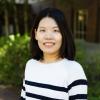
Chen Chen
Chen Chen is an Assistant Professor in the Computer Science Department at the University of Virginia. Before that, she was a Research Assistant Professor at Biocomplexity Institute at UVA and a software engineer at Google.
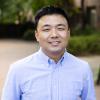
Zezhou Cheng
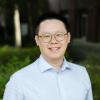
Chen Cui
Chen Cui's current research interests are on spacecraft electric propulsion, space environment, and computational plasma physics. Chen Cui's work focuses on the high-fidelity, fully kinetic modeling of plasma dynamics in spacecraft electric propulsion thrusters, solar wind, and other applications related to low-temperature plasmas.
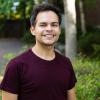
Matheus Venturyne Xavier Ferreira
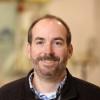
Jason Forman
Jason Forman's research includes the development and biofidelity evaluation of anthropomorphic test devices, the execution of impact biomechanics in simulated automobile environments, the development of injury risk functions with dummies and computational models, analysis for injury risk evaluation, and investigating the effects on injury risk.
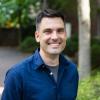
Peter Griffiths
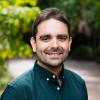
David R. Gutierrez
Assistant Professor of Engineering at the University of Virginia’s First Year Engineering Center.

Mathews Jacob
Mathews Jacob is is an expert in machine learning algorithms for biomedical imaging. He develops advance magnetic resonance imaging (MRI) methods for brain, lung, and heart applications.
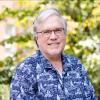
Henry Kautz
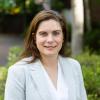
Kelsey Kubelick, Ph.D.
Kelsey Kubelick leverages light, sound, nanoconstruct design and cellular engineering strategies to develop advanced theranostic imaging platforms. With a special interest in ultrasound and photoacoustics, her lab creates imaging tools that play a critical role in informing, guiding and enhancing therapies across a range of biomedical applications.
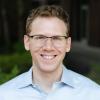
Matthew McMillan
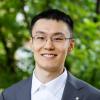
Yu Meng
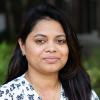
Shirin Provat, Ph.D.
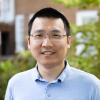
Kun Qian

Karina Rider
Karina researches how people think about "good work" in the digital age. Trained as a sociologist, they use qualitative methods to get at how people critique technology and labor, and how they try to fix it. They are writing a book for MIT Press about what happens when high-status tech workers in Silicon Valley become disillusioned with their jobs.
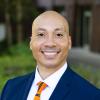
Evan Scott, Ph.D.
Evan Scott, renowned for his groundbreaking work in nanotechnology to address cancer, glaucoma, heart disease, and other conditions, leads the Institute for Nanoscale Scientific and Technological Advanced Research (nanoSTAR) and brings considerable experience to the BME in areas of biomaterials science, nanotechnology, and tissue engineering.
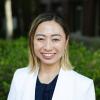
Tengteng (Toni) Tang
Dr. Tang's research program centers on the structure-mechanics relationships of hierarchical biological materials and their clinical and biomedical applications. Many biological tissues, such as our own skeleton, perform a diverse range of functions with remarkable mechanical properties. These exceptional properties arise from the functional
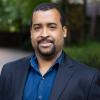
Phillip Taylor
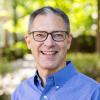
Rob Tieman, PE, PMP
My career has focused on progressive management and engineering expertise that is concentrated in executive leadership of transportation projects, programs, and portfolios.
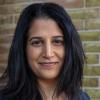
Rupa S. Valdez
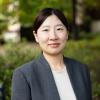
Wenxi Wang
I completed my Ph.D. at University of Texas at Austin under the supervision of Sarfraz Khurshid. During my Ph.D., I also closely collaborated with Kenneth McMillan and Darko Marinov. Prior to my Ph.D., I earned an MPhil (a research master's degree) from University of Melbourne, where I was supervised by Harald Søndergaard and Peter J. Stuckey.
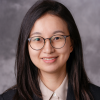
Xiaoxuan Yang
